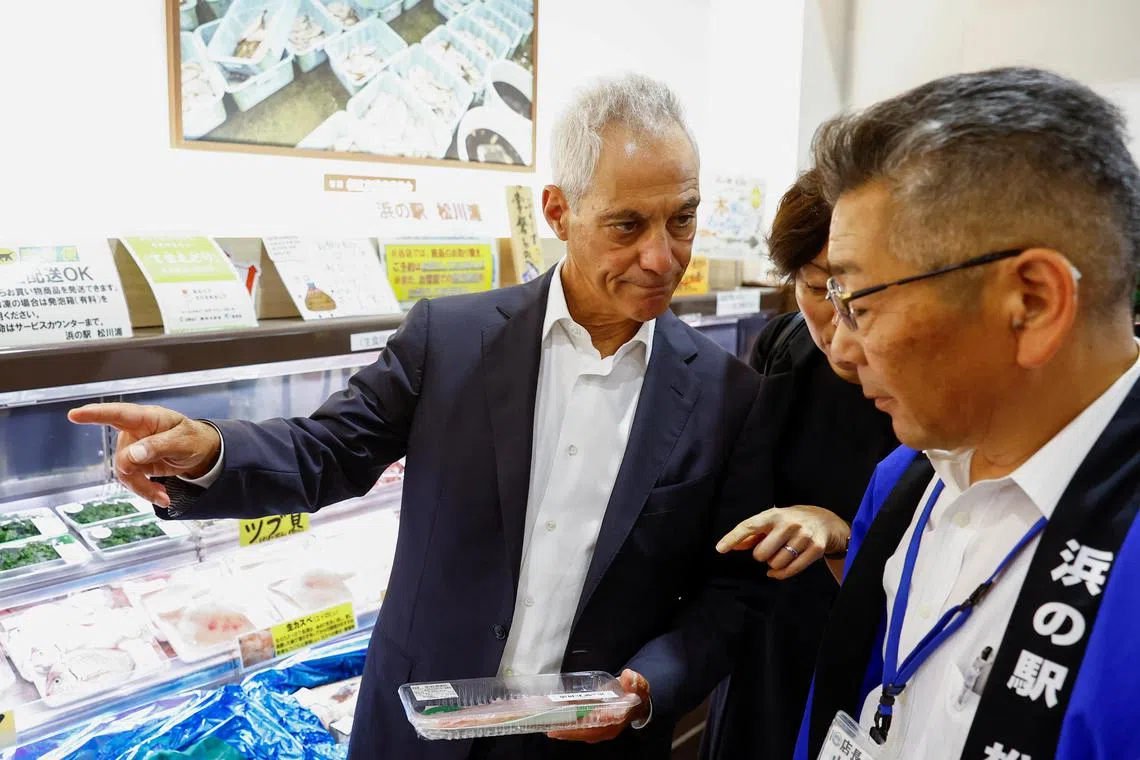US ambassador to Japan visits Fukushima, expects US support in seafood ban spat
Sign up now: Get insights on Asia's fast-moving developments

US Ambassador to Japan Rahm Emanuel visiting the city of Soma in Fukushima prefecture to show his support for the local fishing industry.
PHOTO: REUTERS
SOMA, Japan - US Ambassador to Japan Rahm Emanuel visited Fukushima on Thursday and told reporters he expected Washington to support Japan should China’s ban on Japanese seafood develop into a spat at the World Trade Organisation (WTO)
“If Japan decides to take that effort, the United States will stand by (it) not just because they’re an ally, but because there’s legitimacy to the case,” he said, although he added that he cannot prejudge what would happen and such support would ultimately be up to the relevant US government agencies.
Japan started releasing treated radioactive water from the wrecked Fukushima nuclear power plant
Japan has since sought an immediate end to the ban and threatened to resolve the matter through the WTO framework. Japan has also complained of being inundated with harassment calls since the water release.
“The economic coercion against Japan, the robocalls of harassment and disinformation both here in Japan and around comes right out of China’s playbook. This is all politics,” Mr Emanuel said.
Japan’s Prime Minister Fumio Kishida has said he would compile measures to help the fishing industry hit by China’s ban on Japanese seafood, after visiting Tokyo’s biggest fish market on Thursday.
The government will tap extra funds, tens of billions of yen, from the budget reserves for the current fiscal year to fund the measures, the Nikkei reported.
Mr Kishida told reporters following the visit to Toyosu fish market that requests from fishers included support to help fishing companies develop new sales avenues and holding discussions with China.
Tokyo’s government has set up two funds worth 80 billion yen (S$741 million) to help develop new sales channels and keep excess fish frozen until they can be sold when demand recovers, among other measures. Officials have previously denied the possibility of additional fiscal measures for the industry.
Japan exported about US$600 million (S$810 million) worth of aquatic products to China in 2022, making it the biggest market for Japanese exports, followed by Hong Kong, which announced its own ban on seafood imports from 10 Japanese regions after the Fukushima release.
Some Japanese officials have also signalled diplomatic actions to urge China to lift the ban, which Tokyo says is not based on scientific evidence, including filing a WTO complaint. REUTERS


